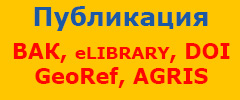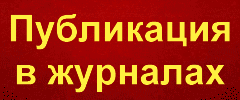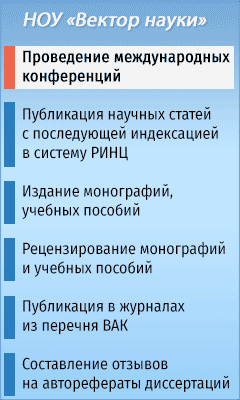1 июня 2017 г. — 3 июня 2017 г., срок заявок: 18 мая 2017 г.
International Symposium “The Uralmash Project: The Cultural Future of [Post]Industrial Cities”
Россия, Екатеринбург (издание включено в: РИНЦ)
Форма участия: очно-заочная
The areas of mass residential industrial development form one of the Soviet era’s most difficult and controversial urban architectural legacies. Furthermore, the passage of time is increasingly highlighting the difficulties of working with this legacy. What had been only ten years ago termed as purely the search for new functional economic solutions and urban development strategies, today exhibits very different layers of concern. As the Soviet system collapsed, the spaces of former socialist cities, industrial townships and zhilkombinats (“dwelling-factories”) lost their functional as well as symbolic significance, turning into the territories of blurred boundaries, uncertain identity and eroded inner meaning. Post-Soviet transformation of these spaces turned into a highly traumatic and extended process entailing the destruction of habitual patterns of urban life, social values and cultural symbols.
What are these spaces today? How did they change? Do we actually deal with mere localities – urban districts that have become the objects of our habitual projections of historical contexts and meanings? Or, maybe, these areas have managed to find a new content and acquire new symbols? If so, what are they and how sustainable are they under the new conditions?
Each of these industrial districts had once been a part of a unified ideological, cultural and urban experiment aimed to bring radical social transformations. Today all these spaces, on the one hand, exist in highly varied architectural/economic/social contexts; on the other – they are forced to respond to identical challenges, searching for their place in the patterns of new urban living. This means that each successful local experience in working with such heritage claims by default to have a global significance and a universal applicability.
“The Uralmash Project” is an attempt to evaluate this kind of experience using as a case study the district that in Soviet era was considered an exemplar “socialist city”; then, in 1990s, was reduced to a typical “lost” space devoid of its former significance; and, finally over the last several years, became again an object of public attention and vigorous discussions. Today, Uralmash sostsgorod district in Ekaterinburg became a venue for numerous cultural initiatives, social projects and artistic experiments. Watching the changes unfolding within the district, it is important to understand the degree to which they could make serious and significant contributions to the district’s new symbols, identity and functional role within the space of a large metropolis.
In a symbolic act, symposium will take place in Uralmash, in a listed building (the former “factory kitchen”) that today houses the youngest institution of higher education in Ural: Ekaterinburg Academy of Contemporary Art.
Symposium is planned as an idea exchange platform both for academic researches specializing in various fields: architects, visual anthropologists, art historians, historians, culturologists, political theorists, psychologists, sociologists, management scientists, urbanists, philosophers, economists and scholars from other academic disciplines, as well as for expert practitioners with the successful experience in transforming former industrial cities and districts (businessmen, policy makers, public activists).
To that end, the symposium format provides the combination of traditional academic framework (plenary section, sessions and roundtables) with the panel discussions at the Museum of the History of Yekaterinburg and the loft of the “Malevich” residential complex, original tours around the Uralmash and the other city districts. Symposium’s participants will get an opportunity to see the work of art residences organized by contemporary artists at the Ekaterinburg Academy of Contemporary Art. Symposium’s programme will also include public debates over the Yekaterinburg’s Spatial Strategy.
The symposium will feature the following main topics for discussion:
1. Investments in culture – investments in human capital: district, city and country scope;
2. Present conditions and future perspectives of industrial districts/cities: architecture, culture, social environment;
3. Indicators of postindustriality: education, culture, business;
4. Approaches to studying local life: potential of oral history, journalism and mass media;
5. New urban development strategies – who will build a new art school for kids and where;
6. Transformation of urban environment: Krasny Oktyabr, Strelka, Flakon – who and what next?
7. Architecture as a source of efficient solutions: cultural institutions and their role in the politics of urban development. helps to overcome challenges faced by cultural institutions;
8. Participatory principle: technology, efficiency, and usage barriers on the level of a yard, block, city or district;
9. Leisure mobility and inequality of access to cultural content: time and money;
10. Urban space as a mechanism of cultural memory;
11. Cultural rebranding of a city: theory and practice;
12. Cultural urbanization: participants, resources, results;
13. Contemporary art in post-industrial city: institutions, audience, mission;
14. Urban development conflict and the culture of its resolution;
15. New mobility: life strategies of industry-based workers;
The symposium is expected to present case studies of [post]industrial cities – the processes and outcomes of their transformation.
There is a special section for young scholars planned: undergraduate, master’s and postgraduate students are welcome.
![]() При обращении к организаторам мероприятия обязательно ссылайтесь на сайт «Конференции.ru» как на источник информации.
При обращении к организаторам мероприятия обязательно ссылайтесь на сайт «Конференции.ru» как на источник информации.
Последний день подачи заявки: 18 мая 2017 г. (приём заявок закончен)
Организаторы: Department of Culture of the Administration of Yekaterinburg; Ekaterinburg Academy of Contemporary Art
Контактная информация: +79122495072 (Larisa Petrova); +79222158045 (Mikhail Ilchenko); +79049841965 (Alexandr Pronin)
Эл. почта: po.pronin2015@yandex.ru
Приложения:
Поделитесь информацией о мероприятии со знакомыми:











